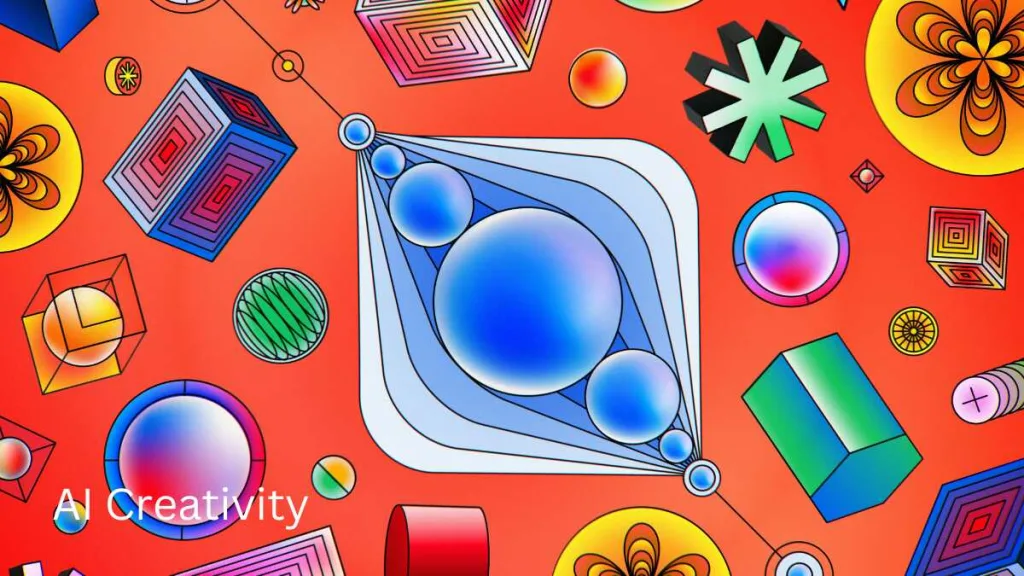
In the ever-evolving landscape of technology, artificial intelligence (AI) has emerged as a powerful force, reshaping the way we live, work, and create. One of the most intriguing aspects of AI’s capabilities is its ability to generate creative content, such as poems, stories, and even visual art. While some may fear that this technological advancement could diminish human efficiency, a closer look reveals a symbiotic relationship that enhances rather than hinders our creative potential. AI creativity does not reduce human efficiency.
AI as a Creative Collaborator:
The integration of AI into creative processes has proven to be a boon rather than a threat. AI tools can assist writers and artists in brainstorming ideas, refining their work, and even suggesting novel concepts. This collaboration allows humans to focus on the more profound aspects of creativity, such as emotional depth, unique perspectives, and personal experiences. At the same time, AI handles the repetitive and time-consuming tasks.
Efficiency Amplified, Not Diminished:
Far from replacing human creativity, AI serves as a catalyst for efficiency. With the ability to process vast amounts of information in a short time, AI tools can accelerate the initial stages of creative projects. This enables creators to allocate more time to refining their craft, experimenting with new ideas, and pushing the boundaries of their creativity.
AI-Enhanced Content Marketing:
In the realm of content creation, AI has become an invaluable asset for SEO-friendly writing. AI algorithms can analyze trends, keywords, and user preferences to optimize content for search engines. This ensures that human-created content reaches a wider audience, driving more traffic and engagement.
Human Touch in Creativity:
Despite AI’s impressive capabilities, there’s an intrinsic human touch that machines cannot replicate. Emotions, personal experiences, and cultural nuances are integral to creativity. AI can assist, but it is the human creator who brings a unique perspective, a sense of empathy, and a genuine connection to the audience.
Embracing the Future:
The key to maximizing the potential of AI in creative endeavors lies in embracing the technology rather than fearing it. As AI tools continue to evolve, so too does our ability to harness their power for our benefit. By understanding the strengths of both AI and human creativity, we can foster a harmonious relationship that propels us into a future of limitless possibilities.
Conclusion:
In conclusion, the integration of AI into creative processes does not pose a threat to human efficiency; rather, it acts as a catalyst for enhanced productivity and innovation. The synergy between AI and human creativity allows us to explore uncharted territories, break barriers, and redefine what is possible in the realm of artistic expression. As we embrace this technological evolution, we find ourselves on the cusp of a new era where the collaboration between human ingenuity and artificial intelligence results in a richer, more vibrant creative landscape.
Update (18.07.2024)
Can AI be truly creative?
The jury’s still out on whether AI can achieve the same kind of creativity as humans. AI excels at:
- Generating new content: AI can create text, images, music, and even videos based on what it’s been trained on.
- Coming up with new ideas: AI can use its vast knowledge to suggest unusual combinations or unexpected solutions.
- Speed and scale: AI can churn out creative content much faster than humans.
However, AI may lack some key aspects of human creativity:
- Originality based on feelings and experiences: AI doesn’t have emotions or a lived experience to draw from.
- Understanding the deeper meaning of things: AI can create content that seems creative, but it might not have the depth or emotional resonance of human-made art.
How AI is boosting human creativity:
Even though AI might not be fully creative on its own, it can be a powerful tool for humans:
- Brainstorming and idea generation: AI can suggest new ideas, helping humans overcome creative blocks.
- Refining and improving ideas: AI can help polish existing ideas and make them more impactful.
- Democratizing creativity: AI tools can make creative processes more accessible, even for people without formal training.
Some interesting things to consider:
- AI can homogenize creativity: If everyone uses the same AI tools, the resulting creative outputs might start to look similar.
- The role of human input: The best AI-generated creative content often relies on human guidance and curation.
- Ethical considerations: Who owns the rights to AI-generated content? Should creators disclose the use of AI?
Overall, AI is a powerful tool that can significantly enhance human creativity. It’s an exciting field with the potential to revolutionize how we approach creative endeavors.
